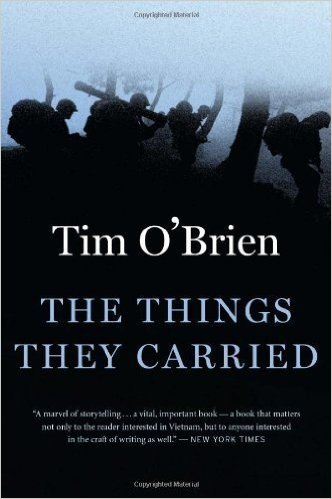An overview of major themes I found while studying metafiction for the Metaclass, a self-study course for a masters of literature at San Francisco State University. This summary will also serve as a guide to the posts I have written over the last four months (with notes about a few others I intend to write). It is not meant to be a comprehensive list of meta conventions, but an addition to the the list found under Meta-Meta and Metafiction. (Nor is this intended to be a summary of themes I developed about writing and teaching, the metaclass aspect. Those themes may be found in Putting It All Together: Collaborative and Integrated Reading and Writing.)
Continue reading “The Conventions of Unconventionality: An Overview of Metafiction”
 “The Things They Carried” is a short work of fiction. The Things They Carried is also the name of what could be called a short-story collection or perhaps a meta-fictional novel. It’s a pastiche of fiction, nonfiction, fantasy, memoir, author’s notations, and literary commentary.
“The Things They Carried” is a short work of fiction. The Things They Carried is also the name of what could be called a short-story collection or perhaps a meta-fictional novel. It’s a pastiche of fiction, nonfiction, fantasy, memoir, author’s notations, and literary commentary.

